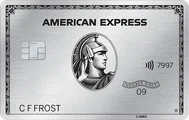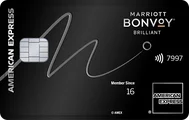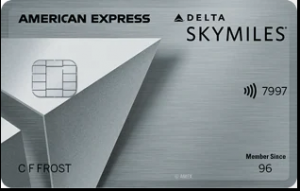Table Of Content
Credit cards have become an integral part of our daily lives, offering convenience and flexibility when it comes to making purchases. However, it's important to remember that credit cards come with a responsibility to pay off the balance each month. This raises the question, “When should I pay my credit card bill?”.
The answer isn't as simple as it may seem, and there are several factors to consider before making a payment. In this article, we'll dive into the different payment options and due dates, along with tips for managing credit card bills to help you avoid costly late fees and interest charges.
What Is A Credit Card Billing Cycle?
A credit card billing cycle refers to the period of time between two consecutive statements generated by your credit card issuer. During this cycle, any purchases, cash advances, and fees you incur on your credit card are recorded and accumulated to determine the balance you owe at the end of the cycle.
There are three important dates to keep in mind when it comes to credit card billing cycles: the statement date, the due date, and the reporting date.
Statement Date: This is the date on which your credit card issuer generates your billing statement, which outlines your account activity for the previous billing cycle. Your statement date typically falls on the same day each month (Usually the last day of the billing cycle).
Due Date: This is the date by which you must make at least the minimum payment on your credit card balance to avoid late fees and interest charges. Your due date is typically a few weeks after your statement date, giving you time to review your statement and make a payment. Missing a credit card payment by 30 days or more can lead to a significant drop in your credit score.
Reporting Date: This is the date on which your credit card issuer reports your account activity to the credit bureaus. Your reporting date typically falls a few days after your statement date, and it's important to keep your balance low and make timely payments to maintain a good credit score.
Understanding these three dates and managing your credit card account accordingly can help you stay on top of your finances and maintain a healthy credit score.
Should I Pay My Bill Early?
The decision of whether to pay your credit card bill early or later ultimately depends on your personal financial situation and goals.
What Are The Benefits Of Paying Early?
Benefits of Paying Early | Benefits of Paying Later |
|---|---|
Reducing Interest Charges | Cash Flow Management |
Peace of Mind | Earning Interest |
Paying your credit card bill early can offer numerous benefits, including avoiding late fees, improving your credit score, reducing interest charges, increasing available credit, and providing peace of mind:
Reducing Interest Charges: Credit cards typically charge interest on any balance that carries over from one billing cycle to the next. If you carry debt, you can reduce the amount of interest you owe by paying your bill early. If you don't have a balance, so you won't pay interest as long as you pay your bill until the due date.
Peace of Mind: Paying your credit card bill early can provide a sense of financial security and peace of mind, knowing that your balance is taken care of and you are not in danger of missing a payment.
Sign Up for
Our Newsletter
and special member-only perks.
Sign Up for
Our Newsletter
and special member-only perks.
What Are The Benefits Of Paying Later (But Before Due Date)?
While paying your credit card bill late can have negative consequences, there are some limited benefits to paying later. Here are a two scenarios in which paying your credit card bill later may be advantageous:
Cash Flow Management: If you are experiencing a temporary cash flow shortage since you have a big purchase or paying taxes with your card, delaying your credit card payment until the due date may give you more time to manage your finances and allocate funds to cover your balance.
Earning Interest: If you have a high-yield savings account or investment opportunity that offers a higher rate of return than the interest charged on your credit card balance, you may be able to earn more money by keeping your funds invested and paying your credit card bill on the due date.
No Matter What You Choose – Make Sure To Pay It In Full
It's always a good idea to pay your credit card bill in full every month, regardless of whether you pay it on the due date or long before.
Paying your credit card bill in full every month means you won't accrue interest charges on your balance. This can save you money in the long run, as credit card interest rates are typically high compared to other types of debt.
It can also help improve your credit score. By making timely payments and keeping your balance low, you can demonstrate responsible credit behavior and improve your creditworthiness over time.

What Are The Risks Of Paying After The Due Date?
Paying your credit card bill after the due date can have several negative consequences and risks, including:
Late Fees: Most credit card issuers charge a late fee if you miss the due date or pay your bill after the grace period. These fees can range from $25 to $40 or more, depending on your card issuer and the amount of your balance.
Increased Interest Charges: If you miss the due date, you may be subject to increased interest charges, which can make it more difficult to pay off your balance over time.
Damage to Your Credit Score: Payment history is the most important factor in determining your credit score. Late payments can have a negative impact on your credit score, which can make it harder to qualify for loans or credit in the future.
Collection Calls and Legal Action: If you continue to miss payments, your credit card issuer may take legal action to recover the debt, which can result in collection calls, legal fees, and damage to your credit score.
Strategies To Managing Your Credit Card Bills
Here are five strategies for managing your credit card bill:
Set Up Auto-Pay: The answer isn't as straightforward as it sounds, and there are a few things to consider before making a payment. In this article, we'll go over the different payment options and due dates, along with some tips for managing your credit card bills to help you avoid expensive late fees and interest charges.
Create a Budget: Creating a budget can help you manage your credit card bill and avoid overspending. Track your income and expenses, and allocate a specific amount of money for credit card payments each month.
Pay On Time: Make sure to pay your credit card bill on time every month to avoid late fees, penalty interest rates, and damage to your credit score. Set reminders or notifications to remind yourself of the due date.
Monitor Your Account Regularly: Check your credit card account regularly to monitor your spending, review your transactions, and ensure that there are no unauthorized charges.
Keep Your Credit Utilization Low: Try to keep your credit utilization ratio low, which is the amount of credit you are using compared to your credit limit, below 30%. This can help improve your credit score and show lenders that you are a responsible borrower.
By following these tips, you can manage your credit card bill effectively, avoid late fees and interest charges, and maintain a healthy financial future.
Sign Up for
Our Newsletter
and special member-only perks.
Sign Up for
Our Newsletter
and special member-only perks.



